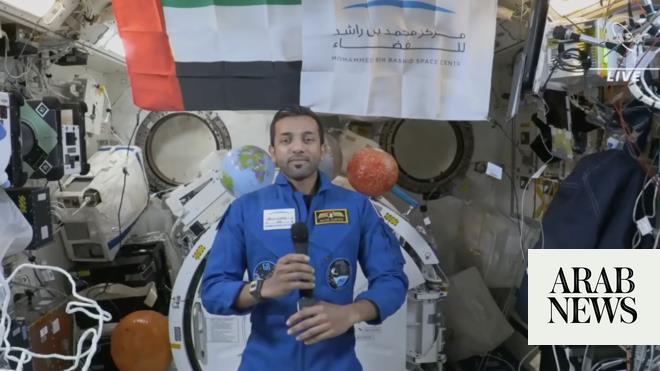
Negotiations between the leading Iraqi political forces to form the biggest parliamentary bloc started immediately after the official results were announced late on Friday.
The backing of Al-Fattah leaders is essential to nominate the next prime minister and form a strong and stable government.
BAGHDAD: Iraq’s Al-Fattah, the Iranian-backed parliamentary bloc that won the second-highest vote in the parliamentary elections, are in deep negotiations with the powerful Shiite leader, Muqtada Al-Sadr to form a coalition.
While it is too early to talk about ministerial posts, Al-Fattah has no veto over Haider Al-Abadi, the current prime minister, from taking a second term, the alliance’s senior leaders told Arab News on Tuesday.
Negotiations between the leading Iraqi political forces to form the biggest parliamentary bloc started immediately after the official results were announced late on Friday. The biggest coalition has the exclusive right to nominate the prime minister and form a government.
The backing of Al-Fattah leaders is essential to nominate the next prime minister and form a strong and stable government.
Ahmed Assadi, the spokesman of Fattah and one of its leaders, said negotiations were continuing with Sairoon, the alliance which came first in the election with 54 seats and is led by Al-Sadr.
“There is no way to form a government without either of them,” Al-Assidi said.
“Both (Fattah and Sairoon) represent the biggest alliances among the winning forces and enjoy great support in the street and the region, so there is no way to ignore one of them.”
The Fattah alliance, which is openly funded and supported by Iran, won 47 seats, which includes 22 seats won by Badr Organization, one of the most prominent Shiite armed groups and 17 seats won by Asa’ib Ahl Al-Haq, the second most powerful Shiite paramilitary group.
The relationship between Al-Sadr and Fattah leaders is tense as the cleric has accused Fattah factions of carrying out an Iranian agenda in Iraq.
Al-Sadr has said on several occasions in the last two weeks that he is ready to negotiate with all political forces except Fattah and the State of Law — led by former Iraqi Prime Minister Nuri Al-Maliki.
But Al-Sadr’s tone has changed in recent days and he has come back to say that the coalition he is working on, is open to everyone.
Assadi and two other Al-Fattah leaders said talks have focussed on forming the biggest parliamentary bloc so far not the nomination of the prime minister.
“Our vision is to form a big parliamentary bloc first within the Shiite winning blocs, and then go to the Kurdish and Sunni (winning) blocs,” Assadi said.
Along with Sairoon and Al-Fattah, the talks involving prime minster Al-Abadi’s Al-Nassir alliance, Hikma, led by the prominent cleric Ammar Al-Hakim, Al-Wattiniya, led by Vice President Ayad Allawi, and Maliki’s State of Law.
The only thing that has been agreed upon so far is the formation of a national majority government, not a political power sharing administration. Also, the negotiators have agreed to postpone talking about positions, including the post of prime minister, leaders said.
“It is still too early to announce any coalition,” a senior leader of Fattah involved in the talks and talked told Arab News. “Talks are still focusing on the government program and the details are too many.
“Al-Sadr, Nassir and Hikma are insisting to nominate Al-Abadi but we clearly said that we have no veto against him, but that there would be no discussions over the names until we agree on all the other details.”












